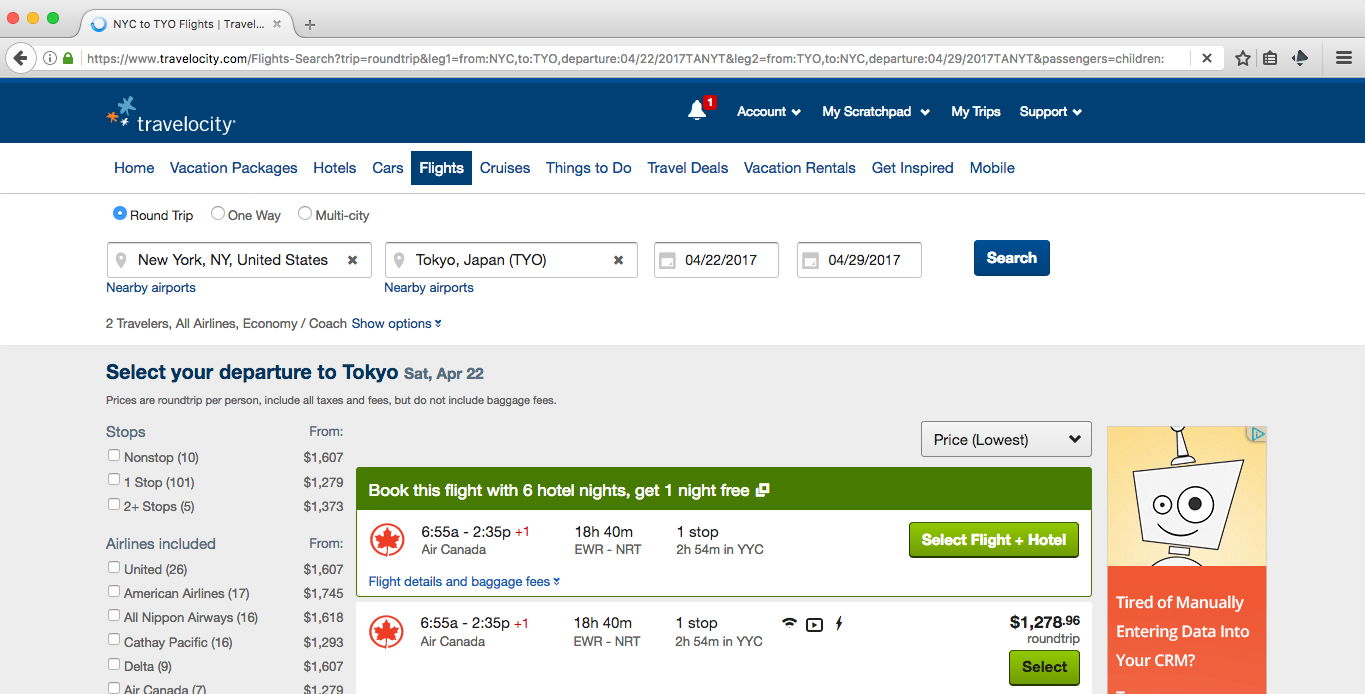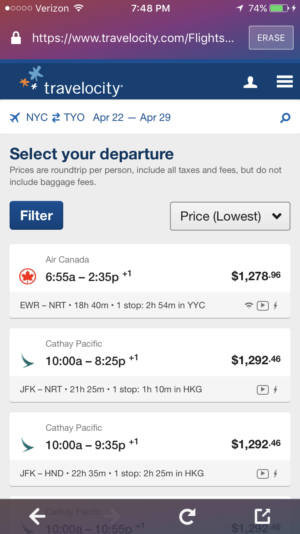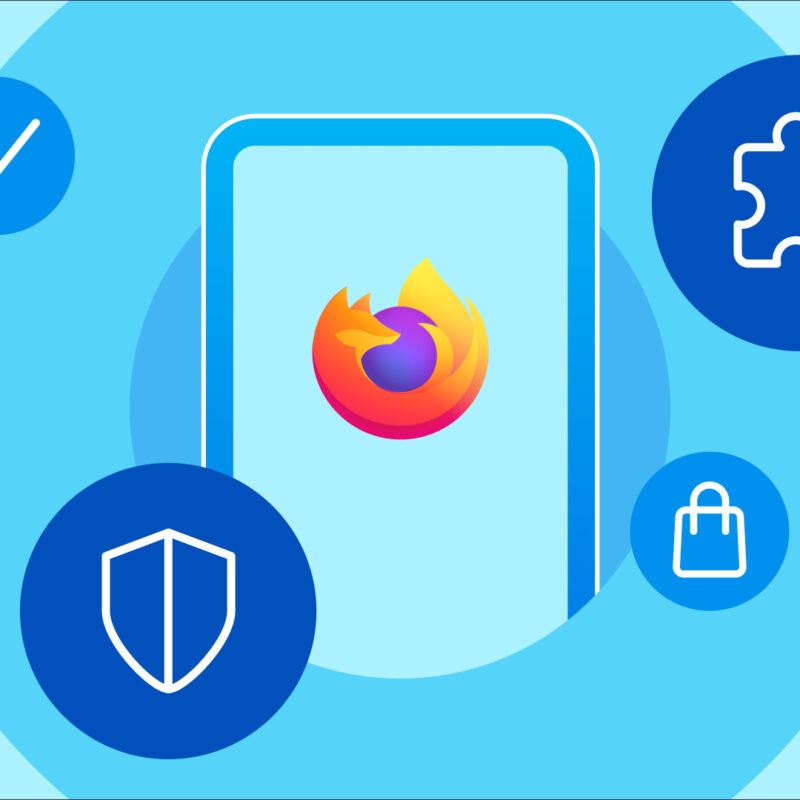For our fellow denizens in the Northern Hemisphere, it’s the height of summer, the season of getaways. But if you live on the internet like we do, you probably notice vacation deals following you year-round, even in the dead of winter. With every sign telling you to get packing, where should you go? And once you decide, how do you find the best cheap flight / lodging / activity combo on the vast and ever-changing web?

With access to a wealth of travel information comes newfound power—and pressure—to book a memorable holiday at a price that’ll leave you pocket change for tacos and kitesurfing. Whatever floats your boat, now’s the time for that end of summer escape!
While the exact percentage of travel booked online varies from study to study, the overall trend of travelers reserving airline tickets and hotels on the web and via mobile apps is on the rise. In fact, The Skift reports that, by 2020, the travel industry will have the highest percentage of online payments in relation to all sales than any other industry on Earth.
So what does this have to do with you and Mai Tais on the beach, anyway?
To start, if you use the web to find cheap flights, you might notice an uptick in web ads for the routes you just searched for. These results aren’t just influenced by what you look up and buy online, but include related sites—even online publications where you get your news and celebrity gossip.
Some e-commerce sites have even been caught displaying different prices to different customers based on a variety of potential factors, including one’s browsing history. Believe it or not, the rabbit hole goes deeper—the device that you’re using to search the web can influence results that come up.
Ask anyone: it feels great to score a vacation deal. But what’s arguably not so great is the possibility of being served a more expensive option simply because you splurged on, say, a luxury hotel upgrade (with whirlpool hot tub, thankyouverymuch) once upon a time.
Unfortunately, there aren’t many ways to escape trackers and third-party sites that are programmed to collect information that we all share access to with each web search, click and purchase. Many of us have spent years doing this: giving up juicy info about ourselves when prompted—our likes, dislikes, home addresses, shopping habits (insomniac online shopper here)—all in the name of steering us to action, like typing in a credit card number or requesting even more personal info through a signup page.
This Spring, I—Amy here. Hello!—set out to compare search results and prices for a trip to Japan. Over the course of a week, I conducted a totally non-scientific experiment using different browsers and devices to compare flight deals and combinations between my home city of New York and Tokyo. During this time, I noticed that different options were pushed to the top depending on whether I searched in Firefox Focus on iPhone or a regular Firefox session on my laptop (not a private browsing window).




With online booking being the go-to option for more and more travelers, many of us have become savvy to online price steering and even online price discrimination. While it’s difficult to prove the latter, my experience booking the trip to Tokyo and other destinations yielded enough inconsistent price results and flight combinations to warrant a second (and third) look on different browsers and devices. And after booking the flights, I was served web ad after ad for where to stay in Japan.



So does Firefox Focus actually reduce the amount of info that companies can collect from users? I went straight to the source and asked Fabio Rios, who works on product marketing for Firefox, about its underlying tech.
“When trackers are blocked, individual devices are not tagged with a cookie so companies can’t follow you around the web, or see what other content you visit and engage with,” he said. Furthermore, “with Focus, we also block some analytic trackers which keep you from getting logged in Google Analytics and similar trackers.”
In the brand new Firefox Focus for Android, users can even see the number of ads the app is blocking. Woot!
Still, you’re never entirely invisible in the eyes of the all-seeing online gods. For example, if you search in Google, Google can still see what you searched for and the pages you visited. And if your device has any specific programs or apps with access—think adware or company tracking—they might still be able to see where you’ve been or clicked. Private browsing, even with tracking protection, doesn’t hide your IP address, so websites can still see that you were there.
It may be impossible to fully erase years of web search history, but by using simple tools and techniques, like comparing flights on different devices or looking up hotel prices on an always-on private browser like Focus, budget-minded globetrotters will tell you it’s worth flying under the radar when booking a trip.
Because even if you’re not looking out for web trackers, you can bet those pesky trackers have their eyes on you.



